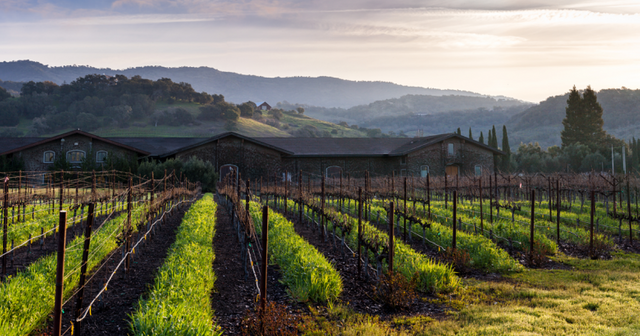
With winds up and down the coast of California, Highway 101 is often switched from a four-lane road to a two-lane road. North of San Francisco, the urban landscape gives way to a rural landscape. Much of the food and wine consumed in the United States comes from California, as do most cannabis. As legalization will take place in the Golden State, how will it affect the intersection of tourism, cannabis and a growing interest in food production in the area of northern counties known as the "Emerald Triangle"?
Recent documentaries such as Fed Up and In Defense of Food have led people to think more about where their food comes from. We have already seen this trend with wine; California is home to countless wine lovers seeking a deeper connection with grapes and vineyards.
The sources of cannabis sold in dispensaries used to be a mystery. As a wine section in Safeway filled with brand name merlots and cabernets, the cannabis flowers were labeled with the dispensary's name and nothing else. With the introduction of regulations and licensing, farmers are coming out of the shadows with greater comfort to promote themselves and their art. Consumers are beginning to develop product loyalty, and with that, the desire to see the farmhouse and meet responsible people.
The Emerald Triangle - Mendocino, Humboldt and Trinity Counties - has long had a reputation as the world's leading cannabis growing region. This is due in large part to its microclimates, unique soils and optimal growing environment. However, because of the ban, farmers remained "underground. In the new world of legalization, one can easily imagine these farms housing the same people who travel north on 101st to visit the wineries. Offers are already underway.
I recently moved from the Bay Area to the Flow Cannabis Institute in Redwood Valley in Mendocino. We are located on 80 hectares owned by the Fetzer family of wines, we are creating a retreat and education center where visitors can meet the farmers who grow their cannabis and learn more about their techniques, all in a beautiful wine-like environment.
Now that the legalization of cannabis is becoming a reality in large states such as California, the industry has a responsibility to create opportunities for people to make connections with plants, farmers and local environments. With growing food and agricultural awareness, the cannabis industry and its related tourism are beginning to create opportunities to meet this growing demand.
By Amanda Reiman Manager of Marijuana Law and Policy at the Drug Policy Alliance.

